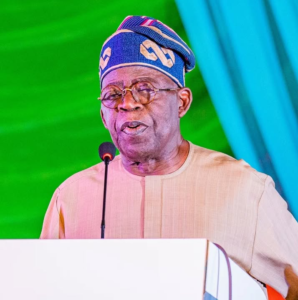The National Counter Terrorism Centre (NCTC), operating under the Office of the National Security Adviser (ONSA), has commenced a comprehensive revision of Nigeria’s National Counter Terrorism Strategy (NACTEST) in response to the country’s evolving security landscape.
The process officially began with a one-day high-level workshop held on Tuesday in Abuja, bringing together a wide range of stakeholders from across Nigeria’s security, intelligence, and policy sectors, as well as civil society and international partners.
In his opening remarks, the National Coordinator of the NCTC, Major General Adamu Garba Laka, emphasized the urgency of updating the strategy to reflect the rapidly changing nature of terrorism and violent extremism. He noted that existing threats have grown more complex and adaptive, requiring a coordinated and forward-looking approach.
“Our current strategy must evolve to meet today’s challenges. Terrorist groups are employing new tactics and exploiting technology in unprecedented ways. We need a modernized framework that incorporates emerging threats and operational lessons we’ve learned over the years,” Maj.-Gen. Laka said.
Originally developed to guide Nigeria’s counter-terrorism efforts through five core pillars—Forestall, Secure, Identify, Prepare, and Implement—NACTEST is now being reviewed to address emerging realities such as cyberterrorism, digital radicalisation, lone-wolf attacks, and the growing links between terrorism, organised crime, and regional instability.
The review is part of a broader national effort to strengthen Nigeria’s internal security and align its counter-terrorism strategy with global best practices. Maj.-Gen. Laka stressed that the revised strategy must not only respond to hard security concerns but also integrate preventive and community-based approaches, such as strategic communication, counter-radicalisation, rehabilitation, and reintegration initiatives.
The workshop included participants from the armed forces, intelligence community, law enforcement agencies, MDAs, civil society organisations, academic institutions, and development partners, all of whom are expected to contribute to the development of a more effective and inclusive strategy.
“This is a collective effort. The revised NACTEST should reflect our shared commitment to peace, security, and national unity. It is not just a tool for the security sector, but a framework for all Nigerians,” he added.
The strategic update also aligns with the broader national security priorities of President Bola Ahmed Tinubu’s administration, particularly in the areas of intelligence reform, inter-agency collaboration, and sustainable national security planning.
Once finalized, the revised NACTEST will serve as Nigeria’s blueprint for addressing both current and future threats, reinforcing its commitment to building a resilient, secure, and stable society capable of countering terrorism in all its forms.
The initiative marks a significant step in strengthening Nigeria’s counter-terrorism architecture and ensuring it remains agile, responsive, and aligned with global standards.






